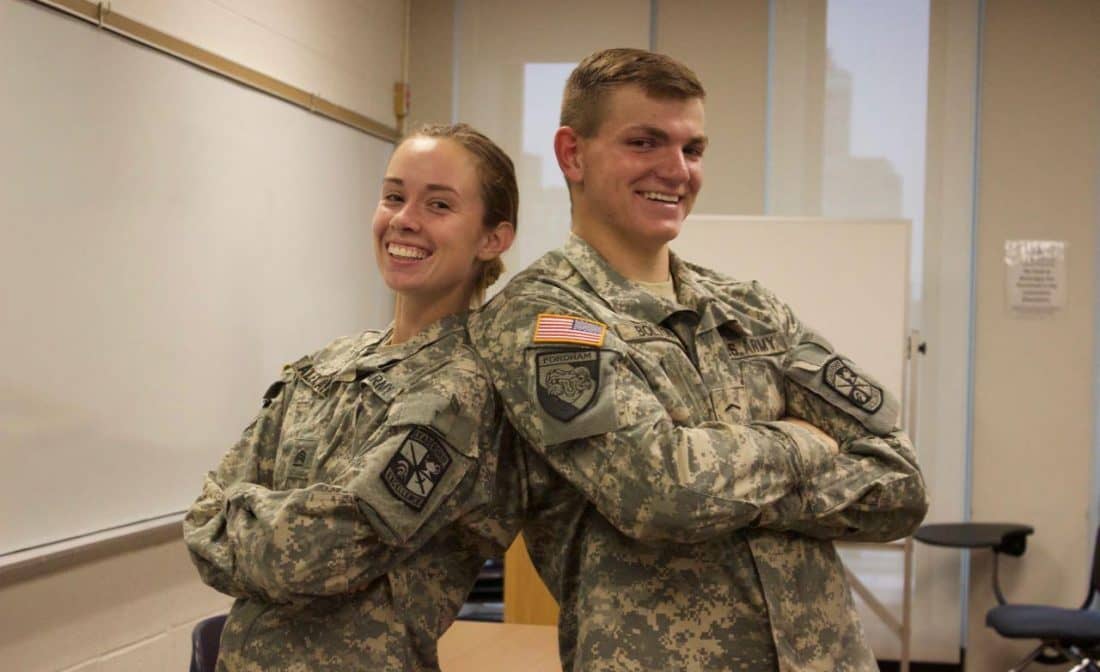Should You Join ROTC in College? Pros, Cons, and What to Know in 2025
Written by Tyson Schritter, College Planning Contributor at Colleges of Distinction
If you’re a high school student thinking about college—and also considering a career in the military—ROTC might be on your radar. The Reserve Officers’ Training Corps (ROTC) offers college students the chance to develop leadership skills, serve their country, and receive financial support for their education.
But is ROTC the right path for you? Here’s a breakdown of the major pros and cons of joining an ROTC program in college, plus a few tips for making your decision.
What Is ROTC?
ROTC is a college-based officer training program for students interested in joining the U.S. Armed Forces after graduation. Programs are offered through the Army, Navy, and Air Force, with training built into your college schedule.
Most programs require a commitment to military service after graduation, especially if you accept a scholarship. Learn more from Today’s Military.
Benefits of Joining ROTC
🎓 1. Scholarship Opportunities
ROTC can significantly reduce—or even eliminate—your tuition costs. Scholarships often cover:
- Full or partial tuition
- Textbooks and fees
- Monthly living stipends
Explore current offerings from the Army, Air Force, or Navy ROTC.
Also, check out what a merit scholarship is to compare other financial aid options.
📈 2. Leadership Development
ROTC students take courses in leadership, military science, and ethics. You’ll also lead exercises and manage peers—giving you real-world experience in responsibility, organization, and public speaking.
💼 3. Guaranteed Career Path After Graduation
Upon successful completion, you’ll be commissioned as an officer in your branch. That means a stable, full-time job with benefits, structured advancement, and leadership responsibilities.
🤝 4. Built-In Community
ROTC creates a strong peer network. You’ll train, study, and serve alongside others who share your goals—often forming friendships that last beyond college.
🌎 5. Travel and Career Variety
Officers may be stationed across the country or around the world, with access to specialties in logistics, medical services, cyber operations, intelligence, and more.
Challenges and Considerations of ROTC
⏱️ 1. Time Commitment
ROTC involves weekly classes, physical training, and field exercises. Balancing these with your academic load can be intense, especially in your junior and senior years.
📜 2. Post-Graduation Service Obligation
If you accept a scholarship, you’ll typically be required to serve in the military for 4–8 years, depending on your branch and role. This is a serious commitment that shouldn’t be taken lightly.
🏫 3. Limited Campus Flexibility
Not all colleges offer ROTC on-campus. Some students may need to commute to a nearby school for training sessions. Explore Colleges of Distinction to find schools that support ROTC students.
🎯 4. Pressure to Perform
ROTC students are held to high standards for academics, fitness, and conduct. Failing to meet those standards can impact your scholarship or career track.
💬 5. Military Culture Isn’t for Everyone
Military life is structured, disciplined, and sometimes high-pressure. If you’re unsure about taking orders or working in a chain of command, ROTC may not align with your personality or goals.
How to Decide if ROTC Is Right for You
Before joining ROTC, ask yourself:
- Am I willing to commit to military service after graduation?
- Do I enjoy structured environments and leadership roles?
- How important is debt-free college to me?
- Do I have long-term goals that align with military life?
Need help talking it through? Check out our top 50 questions to ask your guidance counselor.
Colleges of Distinction Tip
If you’re interested in ROTC, look for colleges that are designated as ROTC partner schools or that offer military-friendly resources. These schools are often better equipped to support your journey both during and after your service.
Explore Colleges of Distinction that support military students →
Final Thoughts
ROTC can be an incredible opportunity—especially for students looking to combine education, leadership, and service. Like any big decision, it’s important to understand both the benefits and obligations.
Talk with your family, connect with counselors, and speak to campus recruiters to learn more. You might also want to plan your four-year academic path with ROTC requirements in mind.




